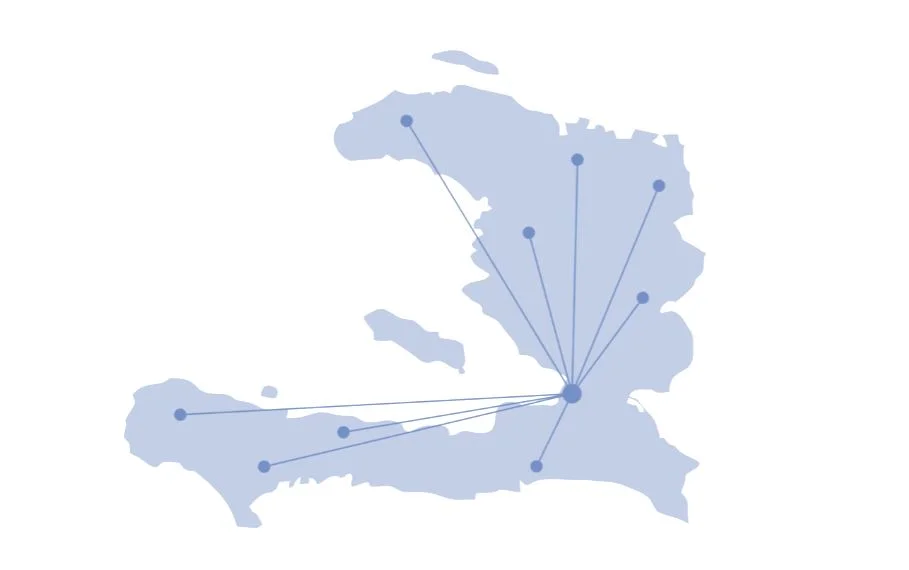Deforestation, like civil unrest, is a downstream problem. Education is the UPSTREAM solution.
An upstream solution creatively addresses a problem at its source. While some situations call for sending help downstream to address an immediate problem, generally “downstream” solutions do not present a permanent or even semi-permanent fix. Instead, chronically focusing on downstream solutions can exhaust resources that could be better put to use upstream. For example, while it may be admirable to spend one’s time constantly restoring houses in the flood zone of a river, it is critical to remember to set aside the resources needed to keep the river from flooding in the first place.
After nearly three decades of incredible results and hundreds of successful alumni, The Haitian Project (THP) recognizes that education, specifically a Louverture Cleary education, is an upstream solution to poverty. With an education and a willingness to share one’s talents with others, a Louverture Cleary School (LCS) graduate is equipped with the tools to not only earn an income that eliminates the threat of poverty for themselves and their family, but they have the tools to rebuild their country. With an education they can, so to speak, both work to stop the “river” from flooding in the first place, even while addressing immediate needs created by the flooding.
In sum, whether the issue is deforestation or civil unrest, long-term solutions are only as effective and sustainable as the capacity and commitment of the people on the ground (Haitians) to provide capable and principled leadership in government, business, and all other social institutions that need to function well in order for a nation to succeed for the good of its people.
Working for a brighter future…today.
Long before your local superstore had bins designated for recycling, paper, and plastic waste, LCS students and volunteers were sorting and repurposing waste, turning compost, and being a good environmental neighbor to the other residents of the neighbohood around the school. Louverture Cleary was a trailblazer in using solar energy and remains a completely solar powered school. Now, as THP embarks on the Louverture Cleary Schools Network, our focus expands to the environmental impact of the next nine schools. Last year, THP sent an advisory team of experts to evaluate how future LCS campuses can positively interact with the physical and social environments in which they will be built.
Michael Moynihan, Ph.D., biologist and president of AGCT Consulting, is a member of this advisory team. In considering the LCS Network, Mr. Moynihan is focused on evaluating how each new school will contribute to both the sustainability and the stability of its environment. From years of his own experience, as well as the experienced shared by his brother, THP President Deacon Patrick Moynihan, he is a firm believer in the upstream solution of education:
It is a part of education to develop and understand that everyday actions of individuals can have wide ranging effects. The goal of each Louverture Cleary School should include the development of persons who will work together with others to develop practices and businesses that provide increased economic reward from sustainable productive activities. Louverture Cleary students are imbued with a sense of responsibility and commitment to improve not only their own situation, but their community, nation, and the world.














